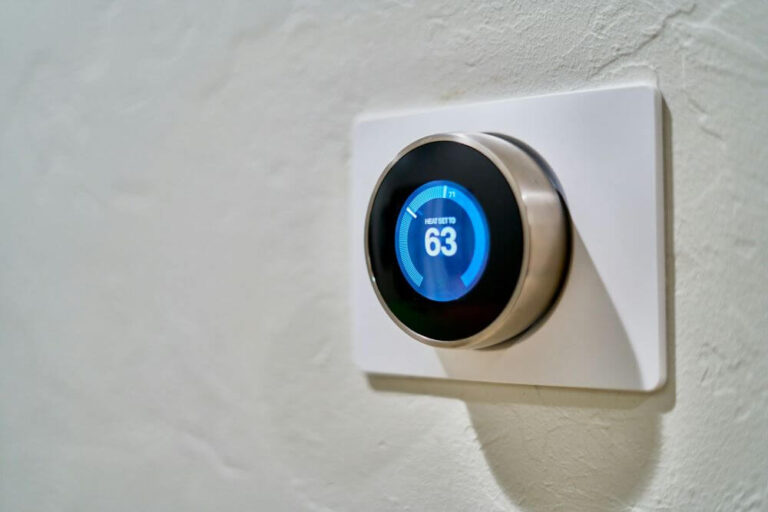Climate control is a crucial aspect of industrial operations, impacting productivity, safety, and the preservation of equipment. With varied processes and settings within industrial environments, it’s essential to utilize the right climate control solutions tailored to specific needs. This article delves into the different types of climate control solutions available, focusing on their applications and benefits to various industrial sectors.
Types of Climate Control Solutions
The industrial sector employs a plethora of climate control solutions, focusing mainly on heating, cooling, and humidity control. Each solution caters to specific operational requirements and environmental conditions, ensuring optimal conditions for processes and personnel alike. For instance, large-scale manufacturing facilities often experience significant temperature fluctuations that require robust solutions to maintain stability. Implementation of these systems is generally guided by various factors such as the type of products, operational processes, and the overall scale of the operation. Understanding these distinct systems becomes imperative for businesses aiming to make informed decisions that affect both efficiency and budget.
Heating Solutions
One of the primary considerations in climate control is the heating solution. Industrial spaces often demand a significant heat input due to the equipment and processes being employed. Options vary, including traditional methods like boilers and more contemporary solutions such as radiative heating. An example is a portable heater which offers flexibility when temporary heating solutions are required. This helps facilities effectively manage energy usage while maintaining comfort levels. Moreover, businesses often explore industrial heater rental and other rental options to address short-term needs without significant financial investment. The ability to rent heaters for a specific duration assists in alleviating budget constraints while ensuring the facility remains operational, irrespective of external weather conditions.
Cooling Systems
Just as important as heating solutions are cooling systems. In industrial applications, excessive heat can dramatically impact equipment performance and lead to downtime, potentially costing businesses significant revenue. Many industries rely on industrial chillers and cooling towers to regulate temperature. These systems remove heat from the process and dissipate it into the environment, preserving optimal working conditions. Chillers, for instance, come in multiple varieties including air-cooled and water-cooled, catering to diverse operational metrics and demands. Investing in the right cooling system not only enhances productivity but also contributes to energy efficiency, as modern systems incorporate advanced technologies that ensure reduced energy consumption.
Humidity Control
Equally critical in many industrial operations is humidity control. Many processes, including pharmaceutical manufacturing and food production, require strict humidity guidelines to ensure product quality and safety. Humidity levels can greatly affect manufacturing efficiency and product integrity, making it imperative for facilities to implement solutions like dehumidifiers and humidifiers. Maintaining balanced humidity levels supports equipment longevity too, as extreme moisture can lead to corrosion and deterioration of machinery. Properly managed humidity allows industries to operate efficiently while also adhering to regulatory standards, avoiding costly penalties associated with non-compliance.
Air Filtration and Purification
Another critical aspect of climate control in industrial settings is air filtration and purification. Having clean air is not just a matter of comfort; it is also crucial for worker health and the longevity of equipment. Pollutants and dust particles can accumulate, affecting both air quality and processes sensitive to contamination. Introducing air filtration systems can significantly improve workplace conditions by reducing allergens and toxins. In environments such as clean rooms, advanced filtration systems are often essential, ensuring that the air remains uncontaminated. Enhanced air quality directly impacts operational success, strengthening worker satisfaction and overall productivity.
Smart Climate Control Technologies
Recent advancements have introduced smart technologies into climate control systems, making operations even more efficient. These innovations allow facilities to closely monitor and adjust their systems in real-time. Using IoT (Internet of Things) devices and data analytics, businesses can predict fluctuations in climate needs and preemptively adjust settings accordingly. This level of control aids in maximizing energy efficiency by using resources only when necessary. Beyond energy savings, automation allows workers to concentrate on essential tasks rather than constantly managing climate controls. The incorporation of smart technology presents a remarkable opportunity for industries to innovate their climate control approaches while reducing overall operational costs. Maintaining stringent climate control is instrumental to the endurance and productivity of industrial applications. A comprehensive understanding of various solutions empowers businesses to implement the most effective strategies.
Climate control in industrial applications is a multi-faceted topic encompassing multiple systems and technologies. From heating and cooling solutions to humidity control and air purification, each plays a vital role in ensuring operational success. Exploring options like industrial heaters can provide businesses with added flexibility in managing their climate control needs while ensuring they stay ahead of environmental challenges. With the ongoing advancements in technology, the future of climate control solutions is not just about maintaining comfort but enhancing overall productivity.


